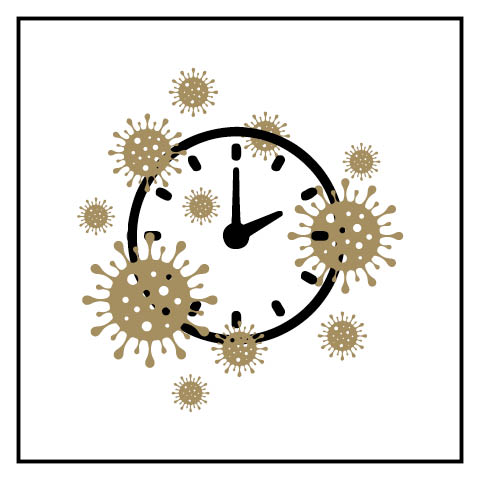When some think of the 2013 Disney film, “Frozen”, many claim it was released 5 to 6 years ago. In reality, it was released over ten years ago, which can seem nearly impossible. This is caused by the 2020 Effect, a societal-wide misperception of time due to a shared experience of isolation.
COVID-19 had a huge impact all over the world. The pandemic not only reshaped the way people lived but left behind a mind-boggling phenomenon named the “2020 Effect”. This misperception has dimmed the boundaries between the past and present, causing new ways society approaches life, self-care, transportation, education, human relations and more. As the world juggled with multiple lockdowns, quarantines, and social distancing, people had gone into a shift in their perception of time. The walls that had once separated every year seemed to fall and warp into a time machine.
One of the biggest changes throughout the pandemic was education. Students had to quickly adapt to the new norm of remote learning. For some, this caused a sense of disorientation, making every school year blend together. The education system felt as if it was put on pause, making students’ sense of progress stunted.
Hygiene also brought its own set of changes. The ever so often act of washing hands became so mandatory it felt wrong to not wash one’s hands at least ten or more times a day. The increased focus on personal hygiene brought days that merged into weeks as the routines humans created revolved around constant health and safety.
Transportation restrictions forced people to find themselves separated from loved ones and daily destinations. The longing to explore the outside world out of people’s isolated homes seemed to stretch the hours into years, intensifying the 2020 Effect. Less transportation meant less interactions with others. Human connections suffered as the virus spread. Online get-togethers, family gatherings, and other face-to-face interactions left people feeling disconnected. While the need for human interaction transcended, the loneliness created a distortion in the perception of time.
The phenomenon has been claimed to be a coping mechanism, making individuals able to process trauma the pandemic brought. Because the virus made the recent past feel closer, it allowed people to regain a sense of control over time, bridging the gap between the disordered present and the ordinary past.
The 2020 Effect serves as a reminder of the strength of human nature and the ways in which shared experiences can reshape the perception of time. Not only altering an individual’s sense of rhythm, it brought forth change and adaptability as society found new ways to steer the world in the face of challenges.




